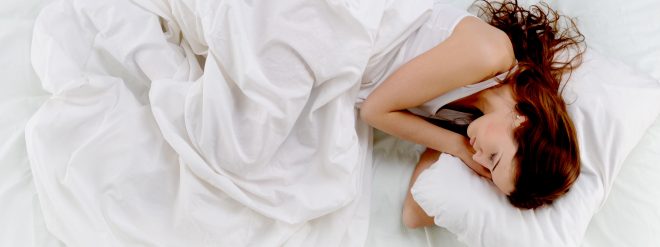![]()
February 2017
Winter has finally arrived, the temperature has dropped and the air is crisper. Many of you will have decided on voluntary hibernation and inactivity as a way to ride it out, but this can be detrimental to your general well being. This month's articles have some advise on avoiding the winter aches and pains, Enjoy.
![]()
Clinic News
The clinic will be closed for Staff training from 12 noon on Wednesday 1st March 2017.
It is with greatness that our long standing Hygiene Technician Lyn, who has kept us clean and shiny for many years, will be retiring at the end of March 2017.
We will be looking for a new team member – please contact reception for details.
Also after his spectacular return five years ago, we say goodbye to Rob again as he sensibly takes a position in Cardiff to be nearer his family. He will be leaving us on Thursday 2nd of March and we wish him well. His patients will be continually cared for by Alex, Sophie and Andrew.

Is the cold weather making your back pain worse?
Do you think your back pain gets worse in winter?
Did you know… Those who suffer with chronic back pain might notice it gets worse during autumn and winter.
In fact… Although there’s not much scientific evidence that shows a link between chronic pain and humidity, temperature changes & wind speed, weather changes can affect those who suffer with joint pain conditions, especially arthritis and osteoarthritis.
Did you know… The most commonly accepted reasoning is that with colder temperatures comes lower air pressure, that can cause joint tissues to expand—further worsening joints already prone to swelling and tenderness.
If cold weather worsens your pain, you can prevent it yourself and combat it with these three simple steps:
Heat therapy
Including heat therapy in your daily routine can help to reduce stiffness and boost healing through increased blood circulation. Try applying a warm towel or a heating pad to your painful area for about 20 minutes for temporary pain relief. You can also go for over-the-counter heat wraps.
Water Therapy
If you like swimming, try to visit a heated indoor pool with hot baths, jacuzzis and saunas a few times a week for almost instant relief from your pain.
Stay Active
As tempting as it is to just stay on the sofa during winter evenings, it is crucial to keep your spine mobile and stay active. If your pain is too severe to go to the gym, try long walks with hiking poles or Pilates at home.

Become A Morning Person This Winter
It’s that time of year again. The clocks have changed, that highly-anticipated ‘extra hour in bed’ has been and gone, and soon the mornings will be darker than they were before. In some people, this can trigger SAD, or at least an increased struggle to get out of bed in the morning.
With darker mornings, many people find it harder to wake and become motivated for the day ahead. There are several things that you can do to avoid repeatedly pressing the snooze button and instead, set a healthy tone for the rest of the day.
Wake up gradually
Many people become irritated by sudden and annoying alarm sounds. Start your day in a better mood by downloading an app that wakes you more gradually, with music or with a tone that gradually increases in volume, easing you in to your morning routine.
At this time of year, light alarm clocks are especially beneficial. These wake you with a gradually brightening light that simulates sunrise. Waking up naturally and gradually this way is much more welcome than being shocked out of a sound sleep.
Nourish your body
Feeling groggy, or even as if you have a hangover, isn’t uncommon when your alarm sounds. However, this may not caused by tiredness. Baring in mind that you have not consumed any food or drink for at least 7 hours (hopefully!), you may be dehydrated.
Keep a bottle of water by your bed to drink first thing. If you’re a coffee drinker, try to have a glass or two of water before your brew.
It’s also important to replenish your body with nutrients after a night’s sleep. Avoid opting for high-sugar and high-carbohydrate foods that will cause your blood sugar to spike and then drop just a couple of hours later. Instead, build your breakfast around complex carbohydrates such as oatmeal, proteins such as eggs, and healthy fats like avocado and nuts. Having a nutritious, filling and enjoyable breakfast to look forward can also be a great motivator to get out of bed!
Exercise
Whether you’re a yogi, gym-goer or enjoy a revitalizing morning stroll, exercising in the morning will get your heart pumping oxygen-rich blood around your body, helping you to function more effectively. Exercise can also be a great way to clear your mind, preparing your for a productive and more stress-free morning, and obviously has a huge benefit to your health.
Introduce these tips to your morning routine, aiming to commit for at least 21 days. This will help you to form healthy habits that both your mind and body will thank you for!

Stiff Neck? No Wonder!
A stiff neck is one of the most common complaints people come to chiropractors with. Most likely you have experienced a stiff neck or tenderness when pressing around the muscle of your neck.
And no wonder! An adult head weighs between 10-14 pounds, or around 5 kilos. To put that into perspective, at the upper end, this is the weight of a bowling ball! This gives a good indication of how strong your neck muscles must be and the demand that is constantly placed upon them.
There are number of things that can cause a stiff neck. The most common is strain or sprain. This kind of damage tends to occur to the levator scapula, the muscle connecting your neck to your shoulder. This can make it uncomfortable for you to turn your head from side to side, up and down, or even tilt it from side to side.
Most people notice a stiff neck first thing in the morning after waking. This is not a surprise, since a muscle sprain or strain can occur simply from holding your neck in an unusual position for a sustained period of time. People who sleep on their fronts with their head effectively forced to one side for around 8 hours are some of the most frequent sufferers! Stiff necks following sleep can also be caused by using an improper pillow; one that is too high or too flat and does not adequately support the neck.
As well as these common nocturnal causes of neck stiffness, our day jobs could also be to blame. Holding your neck too far forward when staring at a computer screen during the day can place undue stress on the neck muscles. The same goes for watching television and using mobile devices.
Aside from these common causes, neck pain can also be caused by injury. Whiplash is a neck injury caused by a sudden movement of your head in any direction. It often occurs after a sudden impact such as a road traffic accident. The vigorous movement of your head can overstretch and damage the tendons and ligaments in your neck. As well as neck pain and stiffness, whiplash can cause tenderness in your neck muscles, reduced, painful neck movements and headaches.
The good news is that neck stiffness is not usually serious and soreness can go away within a few days. The better news is that chiropractic adjustment can help to stimulate the healing process and correct any misalignments that can be contributing to pain.



